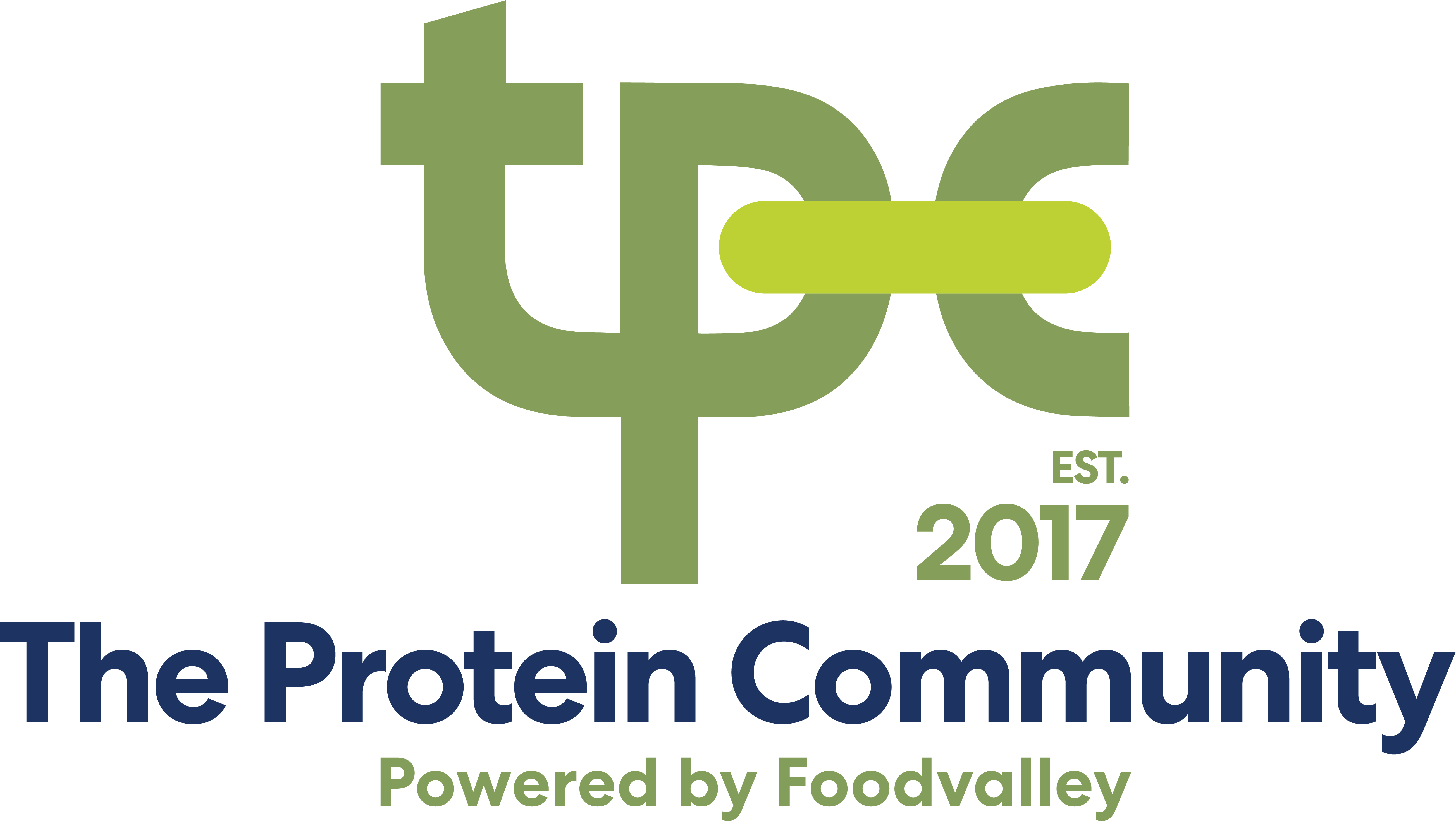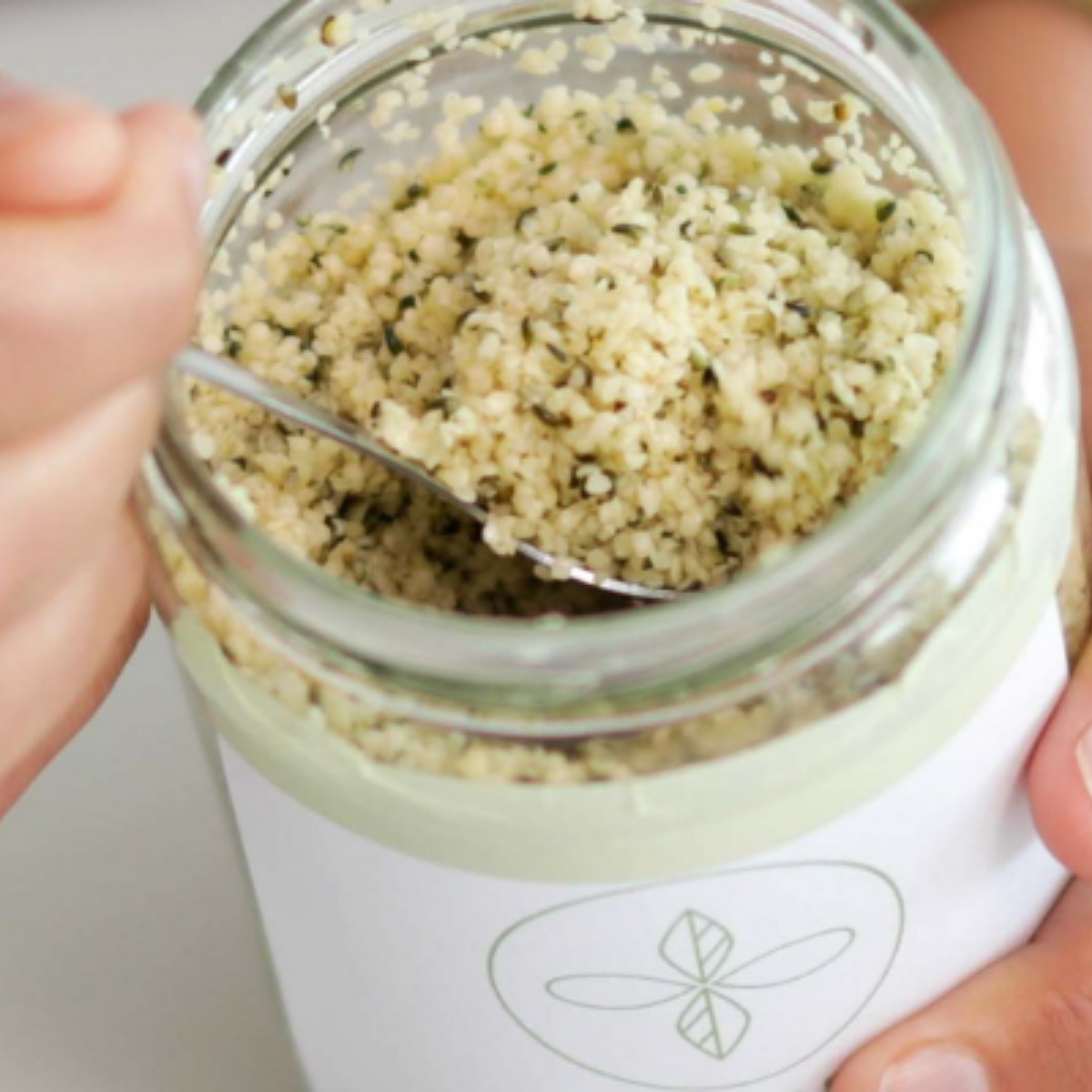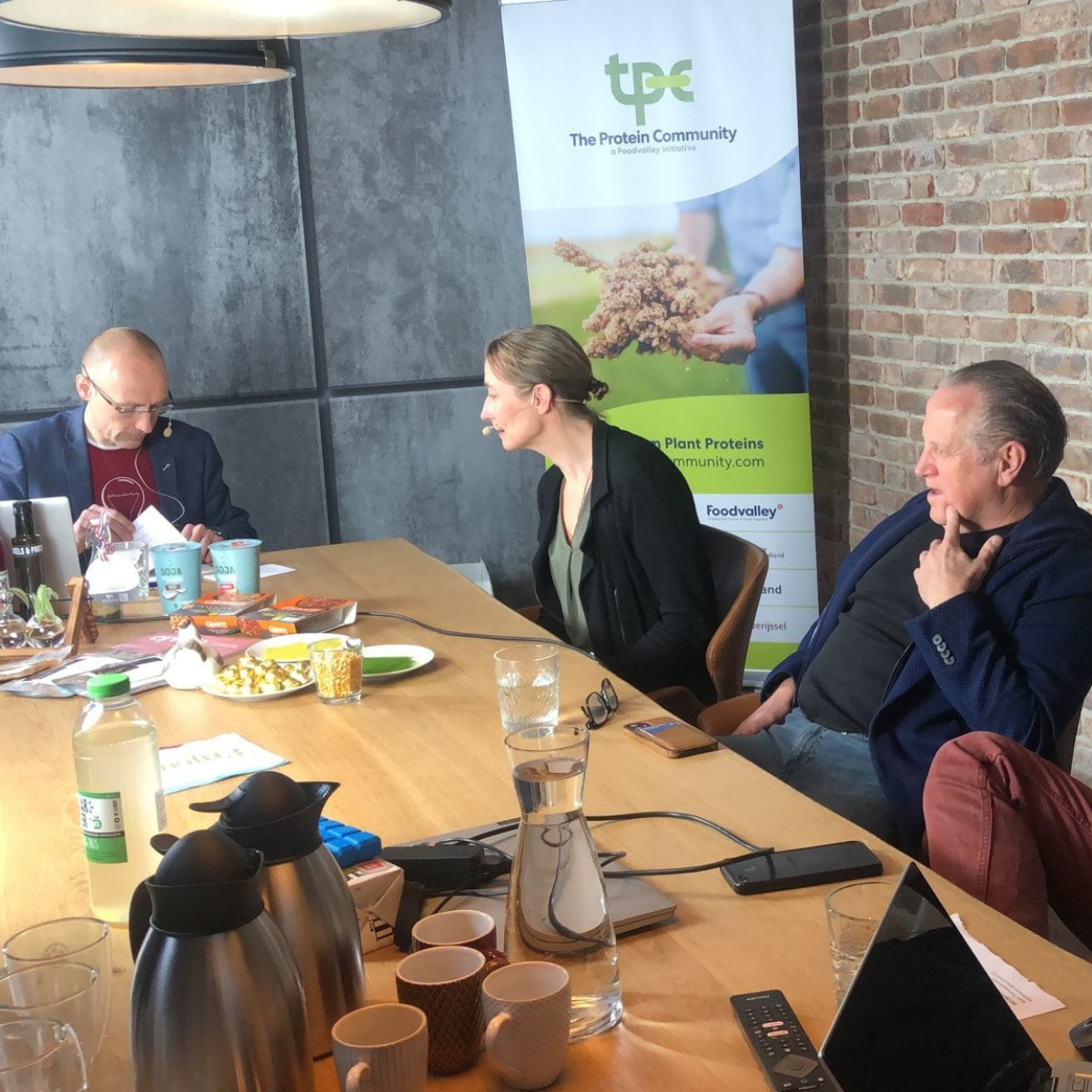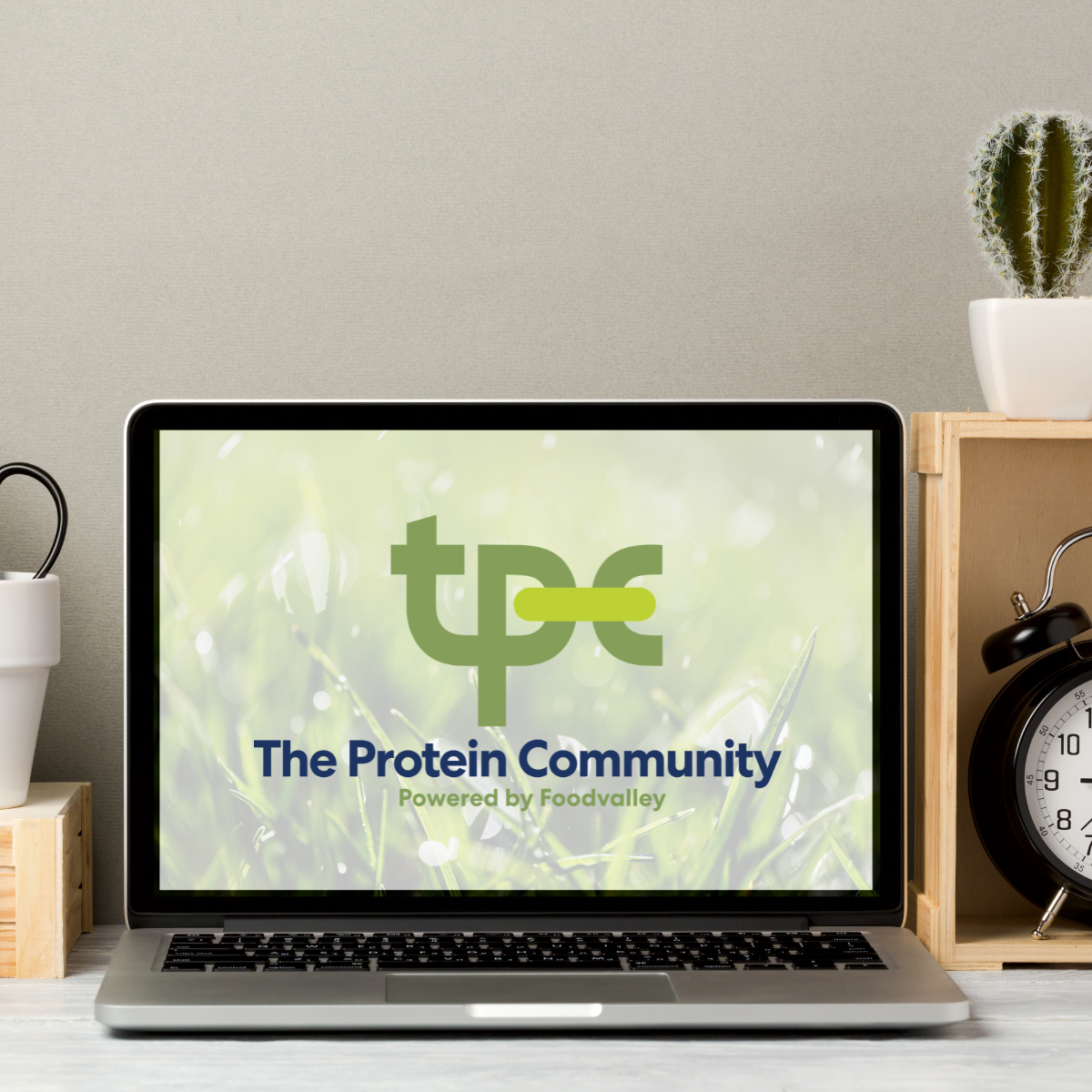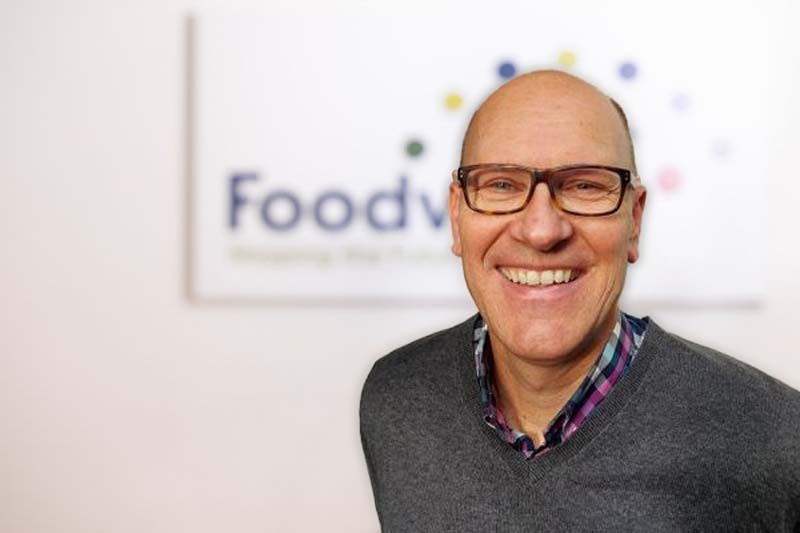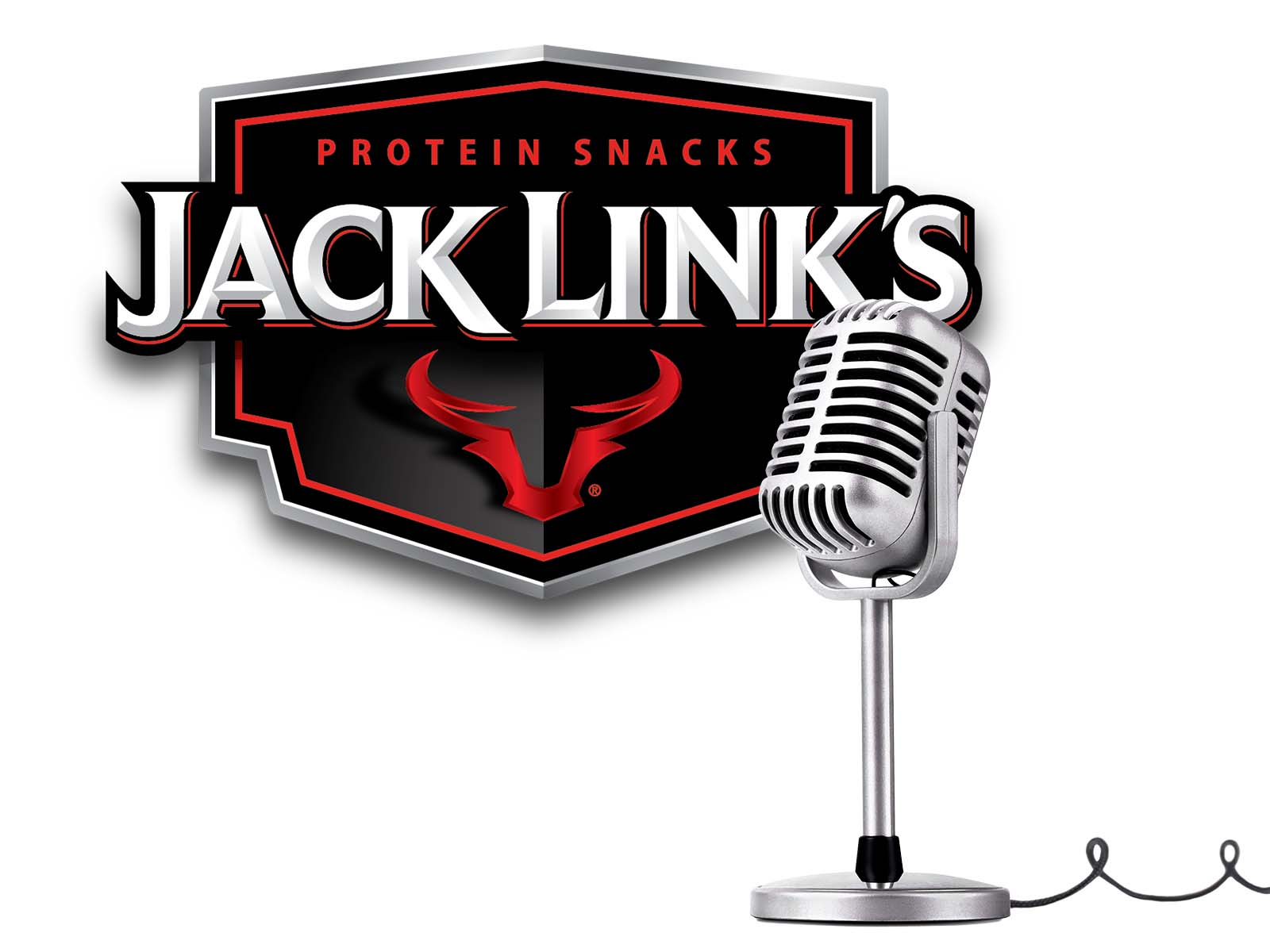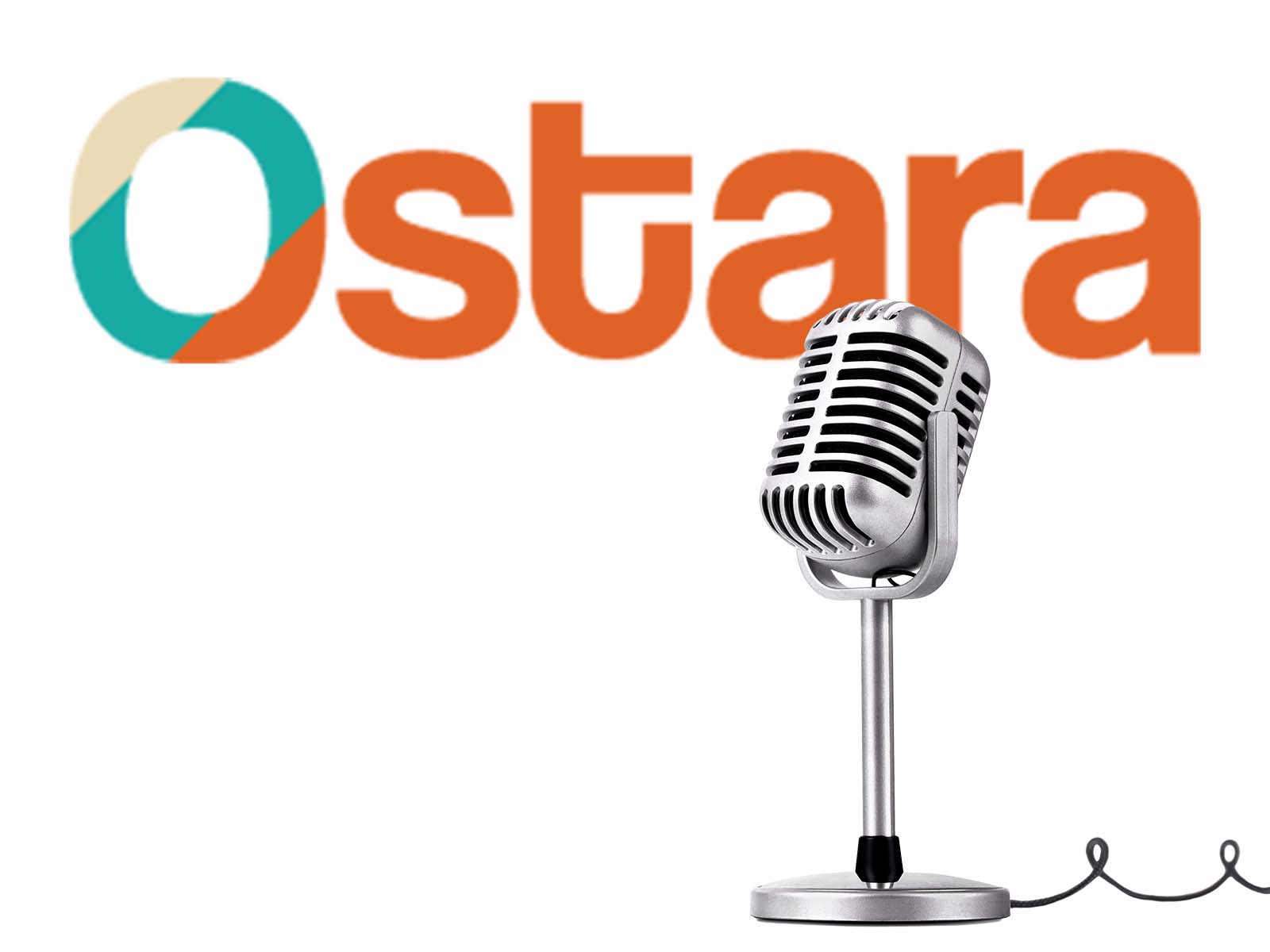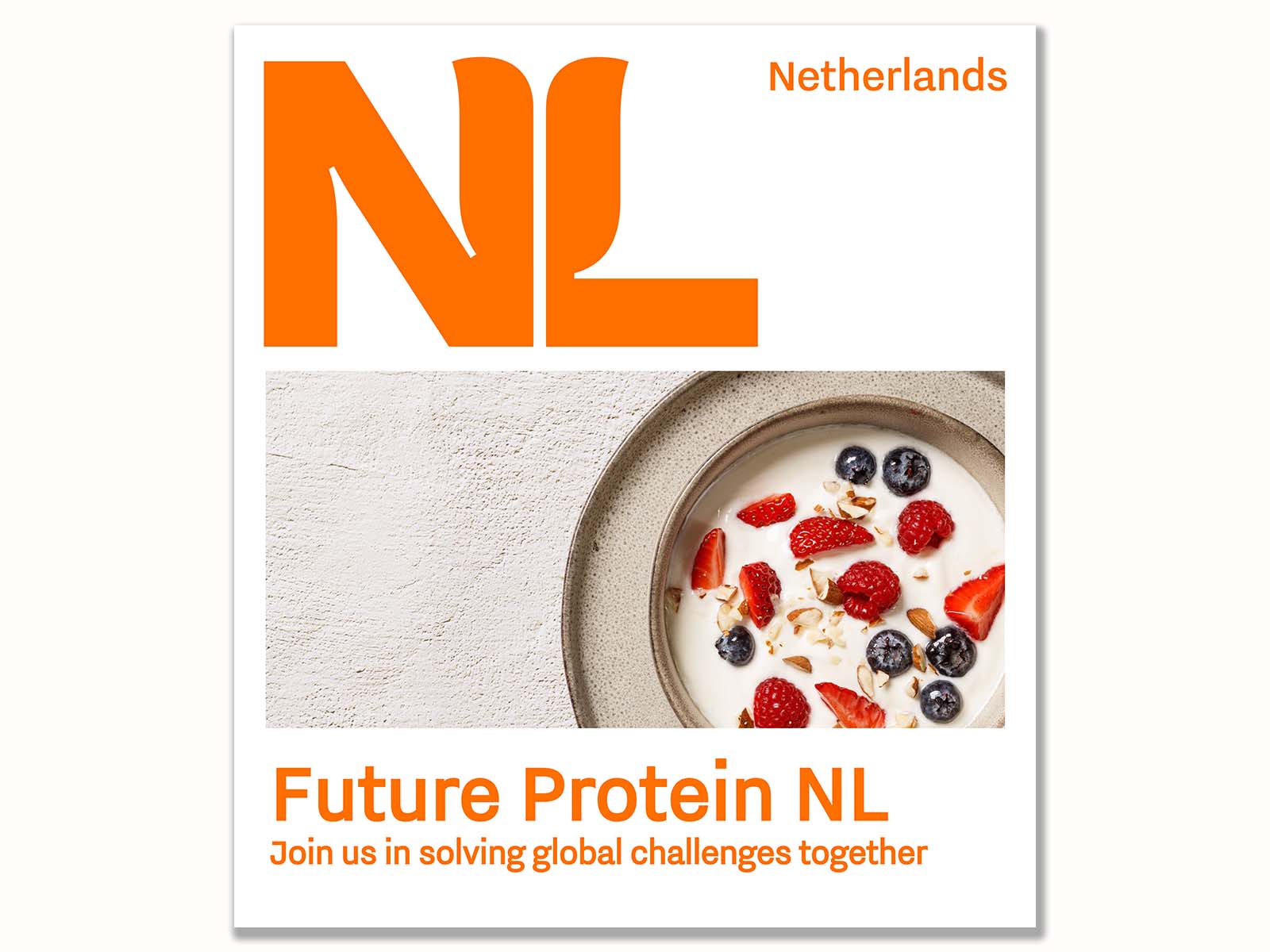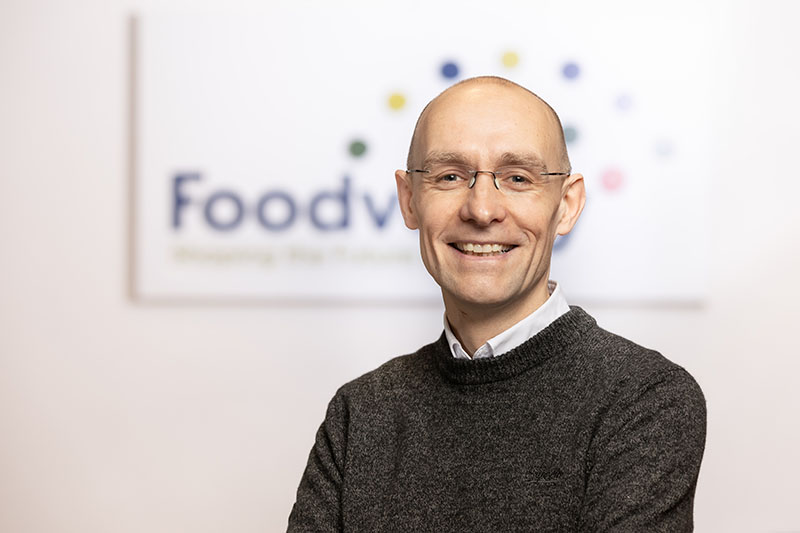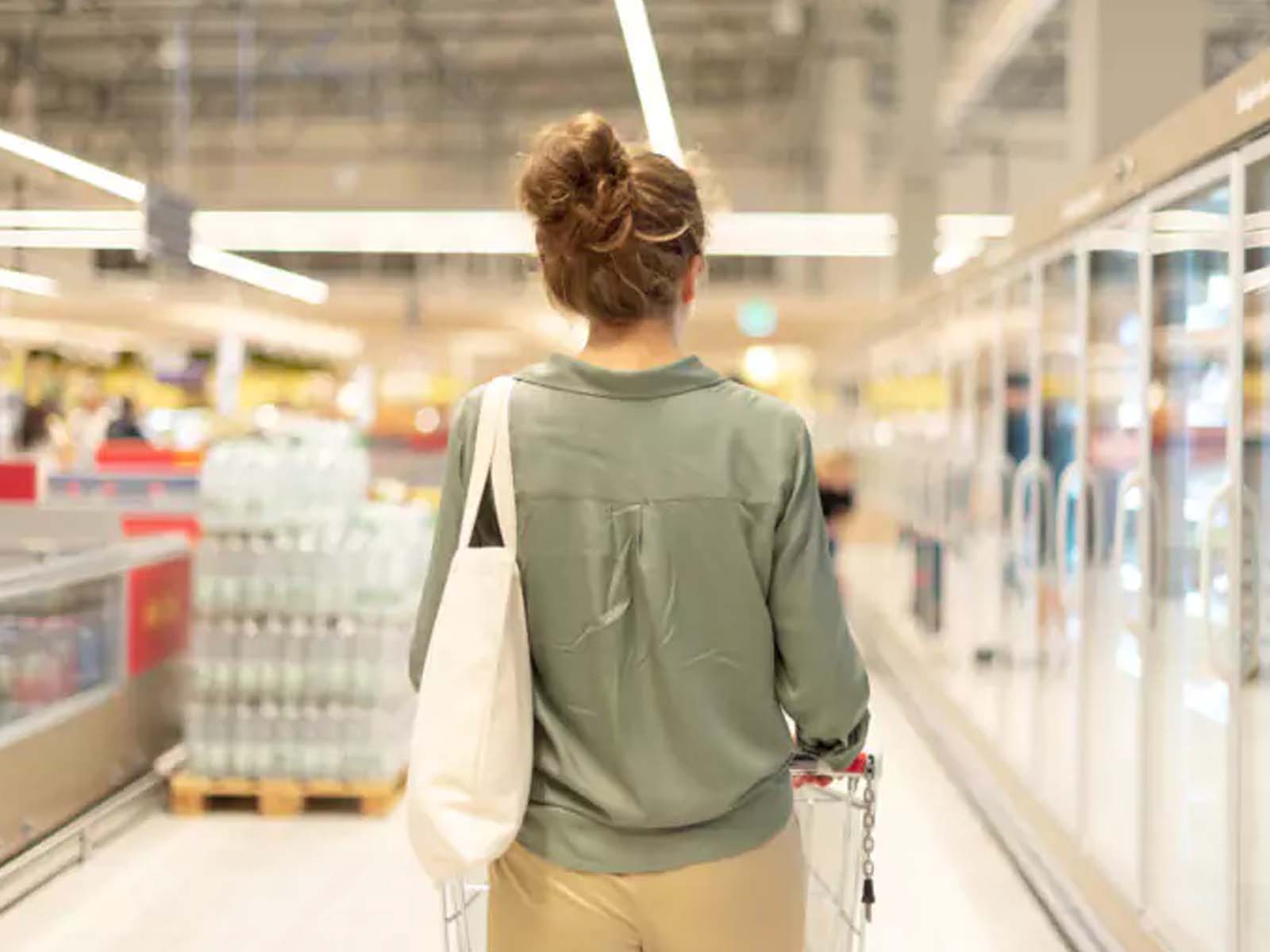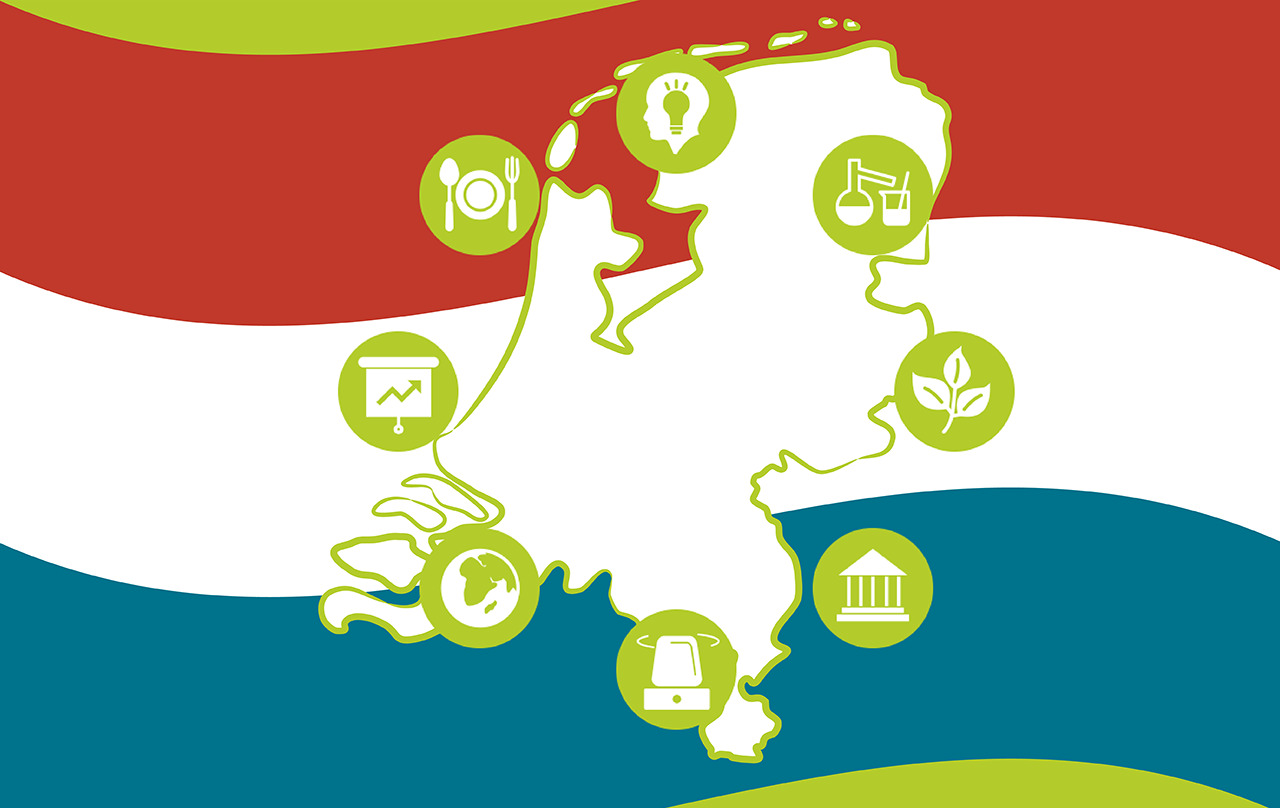Fermentation is our future
News
Last week, in cooperation with the BOM and the Province of Noord-Brabant, we held our exclusive TPC event Accelerating fermentation. For the first time, we broadcasted our event live from a brewery: The Protein Brewery in Breda. The aim of the event was to explore the vast possibilities of fermentation. At the event, we heard from leading companies and food producers about the latest fermentation techniques, flavours and innovations. Together, we discovered the science behind fermentation and learned how to start and grow our business.
A quick selection of quotes from some of the inspiring speakers:
Bart Smit of FerMentor; “Knowing that there are so many amazing microbes, which can be applied to so many substrates in a range of processes; you can imagine that the solution space for fermentation experts to work with, is huge, giving many opportunities.”
Marieke Smidt of Duplaco: “The good news with fermentation is that we harvest every day. We are not dependent on weather conditions, climate conditions, we don’t have to put our production site on agricultural land. With very little space, we can produce a serious amount of algae and therefore also a serious amount of protein. And we can do that on a daily basis!”
What’s next?
Our next TPC event will be held on 16 June, 2022 on redefining the protein industry. Please keep 16 June free in your calendar. More information will follow.
Are you not a TPC partner but interested in becoming one and participate in our network and events? Please contact us.
The Protein Cluster introduces a new name!
News
The Protein Cluster, an initiative of Foodvalley NL, is now called The Protein Community. Together with a renewed look of the website and brand style, the new name will ensure a more relevant positioning of Foodvalley NL. With the name change, Foodvalley NL wants to focus on the active involvement of TPC.
“With this new name we emphasize that the only way to keep up with accelerating the Protein Shift is to work as a community. To deliver innovative protein solutions to serve consumers around the world. By calling our network a community, we make it clearer to our members and beyond who we are, what we do and what we want,” says Innovation Lead, Jeroen Willemsen. “It is important to clearly communicate that the basis of TPC is to maximally use our combined experience, creativity, facilities and networks.”
Partner up and find inspiration in The Protein Community
The Protein Community (TPC) is the biggest protein community from The Netherlands. Worldwide, they have more than 100 TPC partners. Members partner up on ideas and find inspiration from each other. TPC makes this possible by providing the right support and by creating a mix of cross-sectoral organisations working on the same topic. As result TPC accelerates the protein transition and its innovations.
Meet Leo Koning, our new Community Manager!
News
My name is Leo Koning, and I will be joining Foodvalley NL as the new Community Manager for The Protein Cluster (TPC).
What Leo adds to the Foodvalley team
I am excited to contribute to the transition for more tasty, affordable, healthy, and sustainable food. To do this successfully, I will use my energetic & positive approach to create engagement with our stakeholders to participate actively in this journey. I believe that working together, sharing best practices, ideas, and focusing on common interest, is the way to make this happen. I have over 25 years of business experience of working in start-ups and in multinational companies in an international role. I am used dealing with complex and challenging situations: thinking outside the box and using creativity to find solutions is what I like the most. It’s my drive to create multiple moments where we can celebrate achieving our goals: accelerating the speed of the global Protein Shift and share the energy and satisfaction in doing that together. I am looking forward to work with you!
How Leo contributes to a sustainable food system at home
Frankly, my wife and daughter don’t really have such a disciplined system at home yet. We do however try to eat more and more healthy food with fresh ingredients and less prepared food. Sometimes we enjoy eating a simple snack meal, especially when nobody is in the mood for cooking. Already we shifted from eating unhealthy snacks to vegetable snacks during the day and evening. What we also do is buy less meat and started to experiment with new ingredients and recipes for tasty meals. Every time we eat a new meal, we analyze the taste, give it a score and decide if we will repeat this meal or not, with or without changes. Finally, we try to buy as much as possible biological and locally produced food, to contribute to a more sustainable food system.
What can you wake him up for in the middle of the night?
WOW, I can think of many things, because I am a huge fan of (live) music, I enjoy attending a concert or festival. My favorites are the North Sea Jazz Festival and DanceValley. Both have a similar vibe, where visitors share the passion for music and having a great time. A good alternative is to arrange a tennis court to play a match with Roger Federer, my favorite tennis player.
Angry Camel interview: “No one can whistle a symphony. It takes a whole orchestra to play it”
News
Angry Camel consists of two enthusiastic entrepreneurs Kotaiba and Bakr, originally from the Middle East. Although they both came from the Middle East, Kotaiba lives in Sweden while Bakr lives in Germany. Both want to bring innovative oriental healthy snacks and superfoods to the market.
Challenge the existing snacking ecosystem
Kotaiba studied for a Ph.D. in service marketing and management with a focus on food ecosystem innovation and previously worked in logistics, sales and marketing. Bakr studied food technology and worked for a Swiss company as a packaging manager. Angry Camel aims to challenge the existing snacking ecosystem and create value for farmers, producers and increase the well-being and health of consumers.
Angry Camel is a nascent idea, ready to take a step into the market. The transition in the protein market to a more sustainable food value chain requires different approaches and many innovative minds. To bring their idea to market, that’s what they were looking for and that is exactly what Angry Camel found at Foodvalley NL; a global network of food companies, scientists and researchers.
Seeking expertise and knowledge
“We believe in building bridges and sharing knowledge and experiences, regardless of geographical location. Therefore, we seek expertise and knowledge on new methods for protein and superfood production. We came across Foodvalley and TPC when we searched on Google. Foodvalley’s profile was interesting in terms of the services they offer, particularly the shared facility and the potential for scalability. In addition, the Netherlands is known for their innovative food ecosystems and the advanced technology in producing and processing the food. We found this an interesting fact and a motivation for us to be part of The Protein Cluster”, tells Kotaiba and Bakr.
What Angry Camel brings to the community
Angry Camel brings to The Protein Cluster a unique take on oriental snacks and super foods. And hopes to overcome unsustainable food practices with their solution and provide the world’s growing population with delicious and healthy snacks.
Jack Link’s interview: Explore and connect within the field of plant proteins
News
As a world leader in branded protein snacks, Jack Link´s has a long-term vision for sustaina-ble growth. They have a global presence and a strong position in Germany, the United King-dom, Belgium and the Netherlands, selling high-quality salami snacks and beef jerky pro-duced by their world-class production facilities.
Jack Link´s has a keen eye on sustainability. For example, they are committed to reducing their overall carbon footprint and give consumers a wide choice of plant-based meat alternatives in addition to meat.
First meat-analogue
Jack Link´s believes it is important to continue to explore and connect within the field of plant proteins. In 2021, Jack Link´s successfully launched its first meat-analogue “Vegerami Chickn´less bites” at Tesco in the UK. A great example of cooperation between ingredient suppliers, research institutes and their development team.
“Our EMEA headquarters is located in Amsterdam. Regionally, we are closely linked with research partners in Wageningen and also collaborate with several Foodvalley and TPC members in develop-ment projects. The unique concept of Foodvalley is to bring together companies of all sizes, from start-ups to multinationals, with experts in ingredients, production and also market insights. We be-lieve that with our knowledge we can drive the protein shift across the food industry”, said Jan-Pieter Schretlen, Managing Director and Felix Ostertag, Head of R&D”.
What Jack Link´s brings to the community
Jack Link´s brings with it a long history in protein snacking, particularly in the area of ready-to-eat snacks, including production and brand marketing capabilities. The route to market of their well-known brands may also be of interest should new technologies seek to make an immediate impact.
Ostara interview: Striving for sustainability with three main pillars
News
Ostara Innovations B.V. focuses on innovating technologies in the field of agri-food and nutrition. They do this by identifying new and exciting research opportunities for the downstream Agri-Tech industry and use their ability to support renowned institutions working on sustainable solutions for the future.
Ideas, Research and Development
Ostara looks for the right idea that fits their values and has potential to become a fully developed product. Furthermore, they support research in downstream agricultural technology, giving the product a chance in modern marketplaces and with conscious consumers. They also support research and development of the ideas they fund and provide end-to-end support to build a prototype of the idea, which can then be scaled up with further collaboration.
“Ostara’s impact goals are focused on achieving efficiency and sustainability in three key pillars: the protein transition, circular agriculture and plant biotechnology applications. The current growth of the world’s population is putting enormous pressure on the food system and on our planet. With a world population expected to reach 10 billion by 2050, we need a 56% increase in food production and 593 million hectares of land to grow the food (150x times the Netherlands)”, adds serial entrepreneur Tarun Reddy.
A natural step
Joining The Protein Cluster was a natural step for Ostara. “Our office is located on the Wageningen campus, so it was a natural next step to join Foodvalley NL and The Protein Cluster. With our expertise in innovative food, protein transition and nutrition and circular agriculture, we found clear synergies to join Foodvalley NL and further expand our network with startups, MNCs and universities that are in the ecosystem.”, explains Tarun Reddy.
What Ostara Innovations B.V. brings to the community
Although Ostara has only been in existence for three years, it has a wealth of knowledge to offer. For example, Ostara has executives with more than twenty years of experience in technology licensing. Mainly around sectors such as F&A, nutrition, sustainable proteins, agricultural sciences, feed additives and pharmaceuticals.
Connecting generations brings protein shift to its tipping point
News
New magazine ‘Future Protein NL’ now online
In Europe, the protein shift is in full swing as we rapidly approach the transition tipping point. Companies and investors are jumping on the bandwagon as they notice that demand for plant-based variations for meat, dairy and fish is growing exponentially. Accelerating this transition requires joint efforts and new roles for all parties involved.
An inventory by Foodvalley NL and Oost NL shows that at least 250 companies in the Netherlands are committed to the protein transition, the number has doubled since 2010. The collaborative initiatives represent a diverse network of public and private sector organizations and NGOs.
Connecting generations is key
Connecting generations is critical to moving the protein shift past its tipping point. How? Evi Vet, the Dutch UN Youth Representative on Biodiversity and Food ad our Innovation Lead Protein Shift, Jeroen Willemsen share their vision in this interview for the magazine ‘Future Protein NL’ (the interview start from page 6).
“Connecting generations has been a guiding example of how we, in The Netherlands, are working on the protein shift. Dutch people are not deterred by the usual ways of looking at innovation or business; entrepreneurship is in our genes. I believe in the power of technology and new products, but even more in the power of people: they are representatives of different generations who shape the future of protein together. For young people adopting new routines is easier. Because they are not burdened by a certain upbringing, in my case with an abundance of meat and dairy”, Jeroen Willemsen explains.
About the magazine ‘Future Protein NL’
The magazine ‘Future Protein NL’ aims to inspire and inform you about what is going on in the Netherlands in the field of alternative proteins. In order to meet with environmental and societal needs, alternative protein sources need to be developed next to animal-based meat, dairy, fish, and eggs. The Netherlands is a global frontrunner in the alternative protein sector, an expert in the field of agri-food, sustainability and knowledge sharing. The online magazine outlines the Dutch ecosystem of alternative proteins, focusing on trade and international ambitions, innovations, and foreign direct investments.
The magazine features over forty exclusive interviews with leading entrepreneurs and organizations, including Beyond Meat, Jaap Korteweg, Founder The Vegetarian Butcher and Those Vegan Cowboys, Meatable, Protix, The Protein Brewery, the LIVEKINDLY Collective, and many more. The Netherlands has a highly developed and competitive agri-food sector with over 150 years of experience in the production of proteins. Over 250 companies in the Netherlands are working on the protein shift; delivering solutions with global impact.
Guido Landheer, Director of European, International and Agro-Economic Policy at the Ministry of Agriculture, “The Netherlands is one of the world’s go-to alternative protein hubs. We are in a transition towards a better balance between animal-based and plant-based proteins. Innovations are born here and translated into practical products. We have a strong focus on collaboration and partnerships.”
“We are extremely pleased that we were able to contribute to the magazine together with a lot of Foodvalley members and hope that this magazine will play its part in the protein transition. ‘Future Protein NL’ is a great invitation for anyone who wants to make a difference in solving the global protein challenge. We shape the future of food together!”, concludes Jeroen Willemsen.
First consumer survey on home-grown plant proteins published
News
To find out what the attitude and knowledge of consumers is around home-grown plant proteins, DVJ Insights conducted a consumer survey on behalf of the Protein Farmers of the Netherlands (an initiative of Foodvalley NL). The consumer survey provides, among other things, insights for the Green Deal Protein-rich Crops that stimulates the cultivation, processing, and consumption of regionally grown proteins. Read the research here.
Local foods have become more important
The results from the study, conducted among 500 Dutch consumers, are promising. For example, in the past year local foods have become more important to 4 out of 10 Dutch respondents. This is mainly due to the climate agreement and the COVID-19 crisis. But availability and media attention play a role in this as well.
Half of the consumers are therefore more motivated to buy plant-based products. The main motivation is health, while price is the main barrier to make a purchase. Supporting local farmers and sustainability and climate are of most added value to consumers.
Recommendations from the study
The research offers great opportunities for the promotion of protein-rich products from Dutch soil. Consumers currently associate local products mainly with meat and dairy. A lot of work is needed to give plant protein-rich products the positive association and value as well. For example, how to enhance biodiversity and soil fertility. The research provides concrete guidelines for this. Read more about these recommendations here.
Who are the Protein Farmers of the Netherlands?
“We bring plant proteins from the Netherlands to life. For soil, biodiversity, farmer, and citizen”, is the slogan of the Protein Farmers of the Netherlands. An initiative of Ekoboerderij De Lingehof, Proeflab Wageningen, Taskforce! Korte Keten and Foodvalley NL. Thirty Dutch protein farmers are committed to the (re)appreciation of Dutch protein farmers and their locally grown products. Because local, vegetable proteins are profitable on all fronts: health, sustainability, and a circular economy.
The Protein Farmers of the Netherlands do this by sharing knowledge about local plant protein products, by seeking cooperation between growers, processors, developers, and makers of end products. Also, by researching the market and consumers with this consumer study.
Dutch Protein Shift Ecosystem Mapped
News
The Netherlands is referred to as a Global Plant-based protein Powerhouse. The Protein Cluster created a non-exhausting overview of over 50 Dutch organisations, initiatives, programmes and clusters shaping the future of protein, including their primary focus areas. The overview was presented during the March 11th community meeting and can be found here.
Is there an initiative missing? Send your suggestion to info@theproteincluster.com. A database of over 200 Dutch post-harvest companies active in the Protein Shift sector will be published soon.
